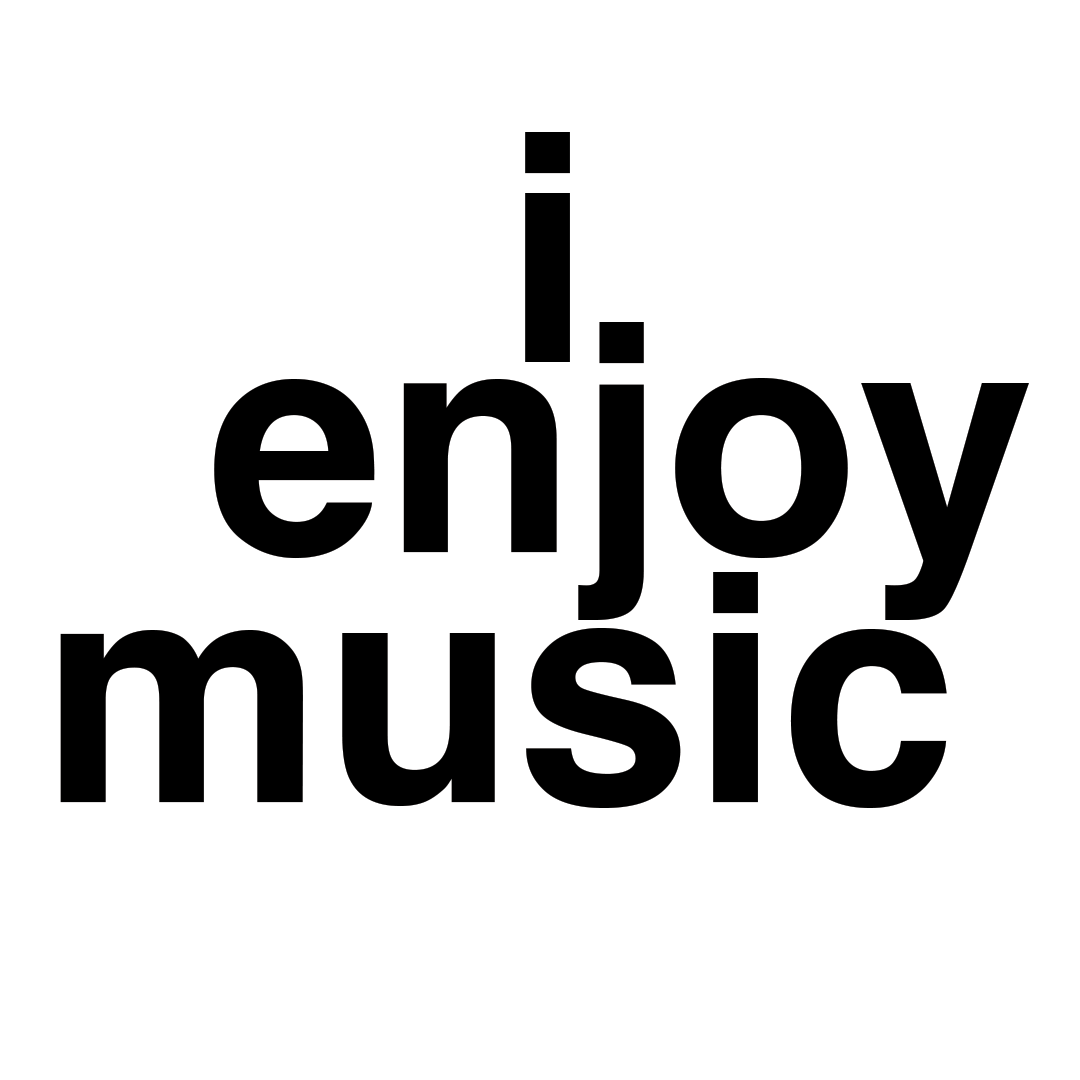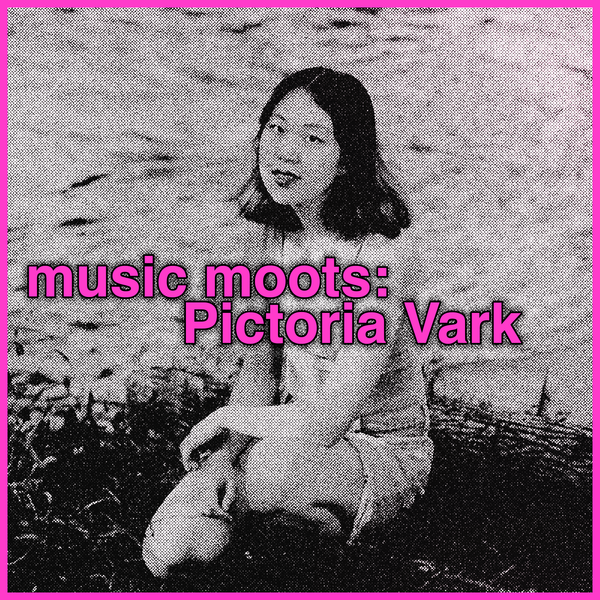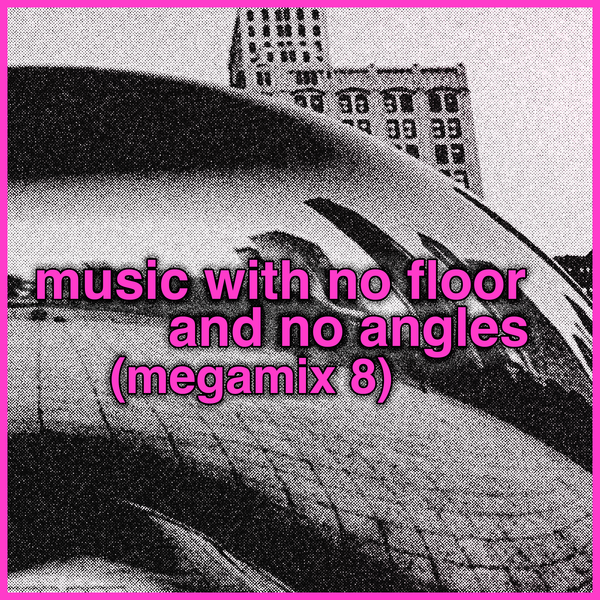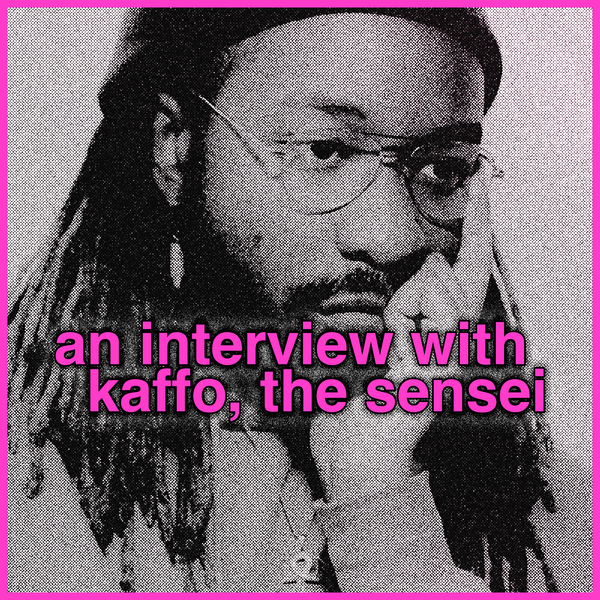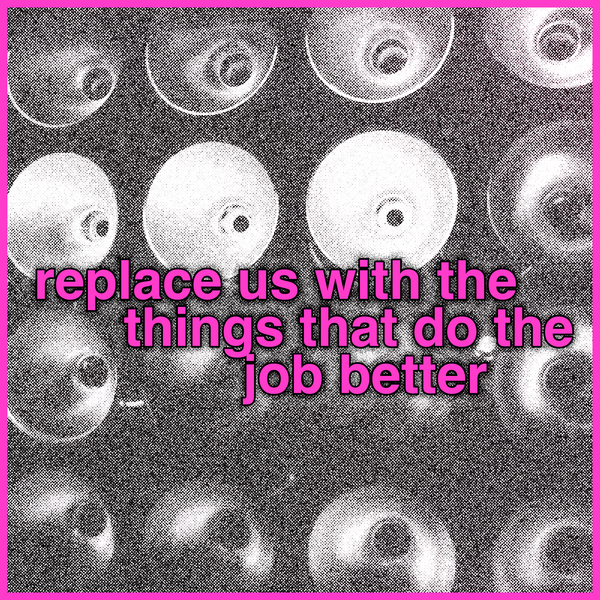"culture is a thing that anyone can make happen" - a chat with Temporary State's Jordan Michael Iannucci
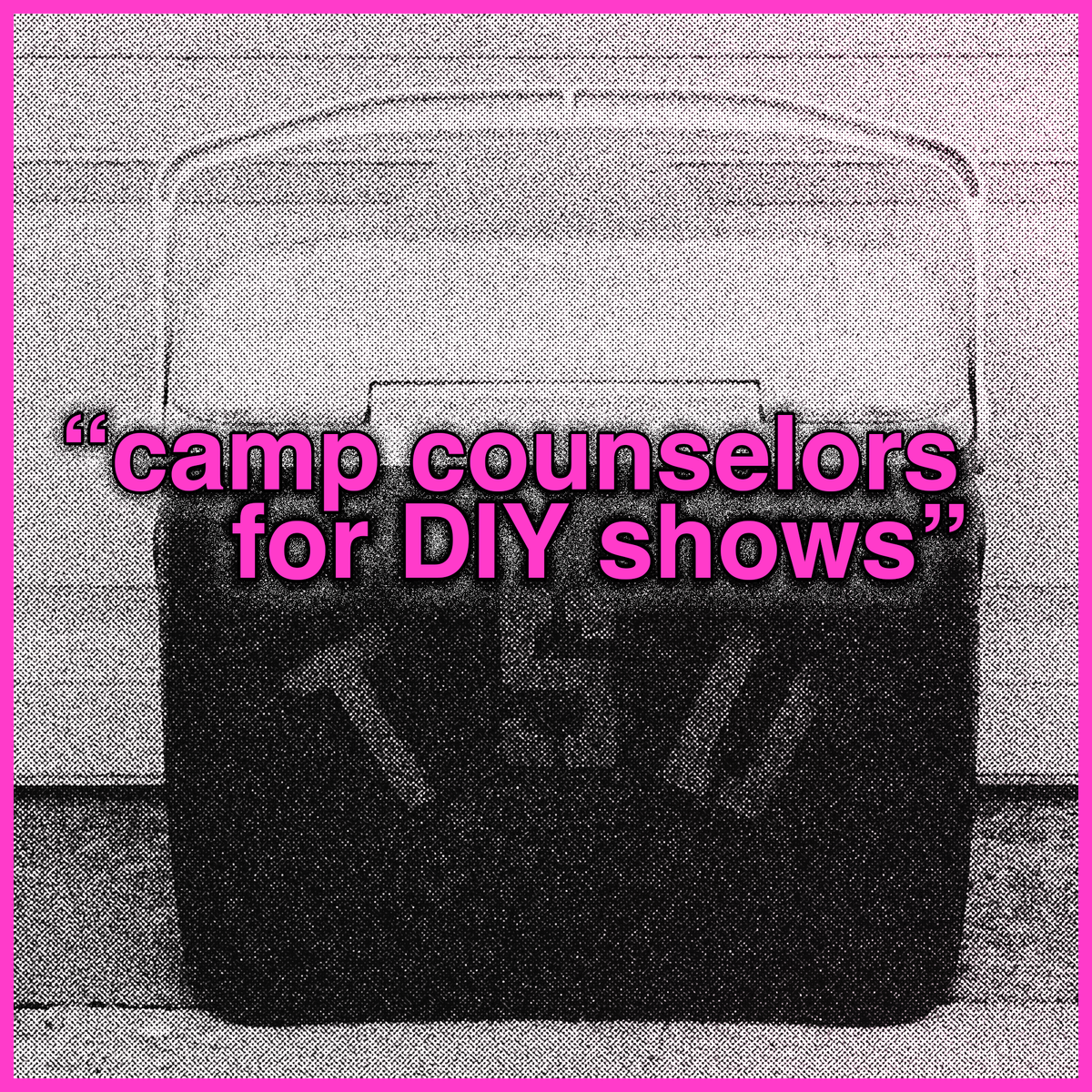
Concerts. Shows. Gigs. We love them, right? Yes we do. What if we all learned how to put them on ourselves?
This is the very basic premise of Temporary State, a new non-profit organized by NYC do-it-yrself veteran Jordan Michael Iannucci, Hannah Pruzinsky and Ceci Sturman (the latter two run the kick-ass showpaper GUNK). Iannucci, whose rich musical history includes booking and producing shows at legendary venues like Silent Barn, 285 Kent, and Death By Audio, describes Temporary State as "camp counselors for DIY shows"; they're publishing guidebooks and hosting corresponding workshops in New York to teach people how to run their own events safely and securely, and folks who participate get access to the org's production equipment, plus mentorship from experienced show producers, which is very cool.
Temporary State is wrapping up a fundraising drive this month with a big day party show in Ridgewood Queens, where artists like Bloomsday and Dirt Buyer will be playing, and where Iannucci promises to "guilt you more than I've ever guilted anyone to sign up" for the org's membership. I chatted with him about the problems with "corporate indie" venues, DIY institutional knowledge, the inherent social value in public gatherings, and why you maybe shouldn't throw dry pasta into the crowd at a show...

[Molly] Thank you for wanting to talk about this project that you're doing. I know you said you weren't sure if it was up the alley of the blog, but it's very much so. I'm trying to focus on the infrastructure that supports music and music-related activities.
[Jordan] I care so much about cultural infrastructure. That sounded like a sarcastic thing to say, but I meant that so, so sincerely.
I know you have a background in throwing events and doing DIY stuff. Will you give me a brief overview of what brought you to this moment of starting Temporary State?
It came out of the closure of a really long project that I was involved in called Silent Barn. I had started doing shows there when I was, like, 20, and then I took on a more managerial role. I was there when we got kicked out of the old space and robbed, and then after that happened, we got a bunch of Kickstarter money, and had to go legit to accept the money and be held accountable—in a positive way.
I was part of the LLC that was on the lease of the new building, and it totally destroyed my credit when we closed. All the loans were in my name, shit like that. I ended up paying out of pocket for a lot of the money we owed when we closed. So after that ended really disastrously for me, I started writing down, how would I do it again? What are the different forms this could take? It became like the screenplay that somebody always talks about that they're writing, but it's never going to get done, it's just the thing you think about all the time and never finish. I had been sitting on it for six years, and then last summer I met this person, Hannah [Pruzinsky], who does GUNK with their bandmate Ceci [Sturman], and they're my partners in this nonprofit.
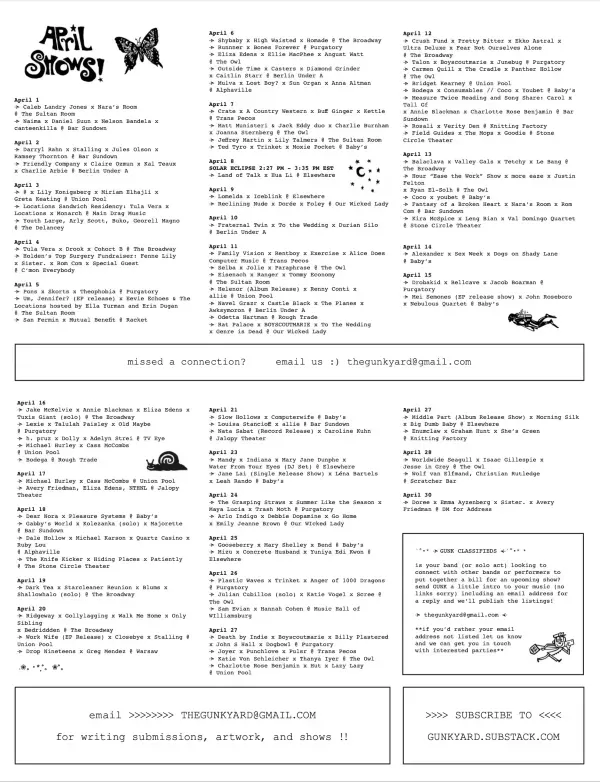
That's so funny, I was going to reach out to GUNK about a feature on the blog because I'm a big fan!
One of the things that got me into all this was I used to do the original showpaper in New York. Do you remember Showpaper?
I moved in 2012. Chris [my husband] would probably remember. Actually yeah, he referenced "the showpaper scene" in a webseries he made about being in a band in north Brooklyn.*
Yeah, it was kind of closing up by around then. Anyway, I did all the listings for that. It came out every other week, and I had a list of over a thousand websites, mostly MySpace pages, that I checked and saw if there were shows. And we listed a lot of DIY shows, all all-ages shows. That was my introduction to all of this.
When Hannah started GUNK, somebody told them to call me because I had done this before. And we started talking about how it's impossible to do a show now. There's no venues, really. The few venues that are in existence are little isolated islands where it's like a fucking sailboat in a stormy ocean, they're all just trying to run these small businesses alone until they inevitably close. And there's not really DIY stuff anymore. I was like, you just need to teach people how to do it and then, like, hold their hands when they're getting started. Me and Hannah talked for two hours, and it made me be like, I need to do this and I need to do it with this person. And then Hannah brought in Ceci and it's been the three of us since.
Will you describe the three workshops that you have planned?
So there are three little guidebooks with corresponding workshops, the whole curriculum is in these three segments. The first part is booking the show. You have an idea for a show, your friend wants to play a show, you see this really cool room that you want to do something in...up until dates are confirmed, performers are confirmed, venues confirmed. Second part is in between that and the day of the show. So it's promoting and production. Not like day-of-show production, but getting everything you need there, making sure you're prepared and telling people about it. And then the third party is day of show: what to do, what not to do, how to respond if something goes wrong.
We're putting together what's essentially a Boy Scout handbook, but for shows. The biggest part is like teaching people what you need to prioritize when you make decisions. You need to be safe, that's number one. Number two is you need to treat people fairly. And then number three is a tie: having fun and being sustainable. There are certain times you can't do the fun thing. "Hey, I know it would be really fun for you to cover the audience in a box of dry pasta. But what will actually happen is the starch will get in the floorboards and every time we mop it will unleash a new layer of sugar on the floor and the floor will never be clean again."
Is that a reference to something that happened?
An actual thing that happened. So you need to be sustainable, because if you cover somebody's floor in starch, they will not let you party there again. Then there's times where, okay, it's safe and I'm not treating anyone unfairly, so...go nuts, you know? It's a tradeoff between the two. And then if that's like a pyramid, the desert is getting into trouble and burning out. So each workshop is really focused on the basics of what you need to do, and how to do it in a way where you don't get burnt out and you don't get in trouble.
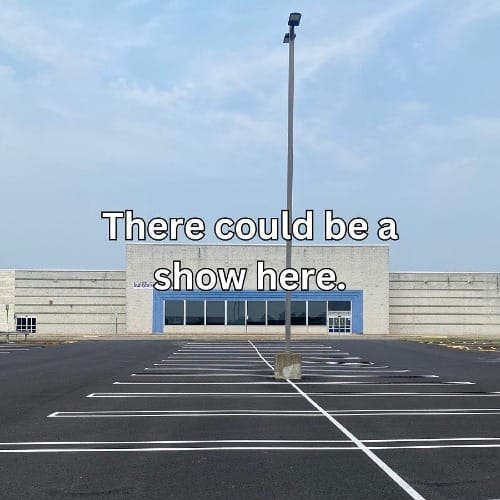
That sounds great. I mean, what it sounds like to me is hard-won knowledge from years and years of actually doing it yourself, formalized in a way that you don't have to suffer for years and years from the side effects of doing it? You can skip to the good part without needing to do the DIY indentured servitude thing.
Can I say two things about that? Because there's two things that are super important to me that you just hit really hard in that.
Yes!
The first thing is, yeah, I want to open up this knowledge that was taught to me, because I was taught how to do this by somebody who was taught by somebody else. And with the closure of a lot of venues and then with Covid, there was a big cleanout of who had—and this is going to sound pretentious, this is going to sound like I went to Oberlin, I barely have a high school degree, I swear to God—institutional knowledge. Between those people and the new people who moved to the city after Covid, there's a hard social break. Not complete, but harder than I've really ever seen before. And the institutional generational knowledge, it was kind of broken. So I wanted to open that.
And then the other thing you talked about was DIY servitude. That was super fucking real. When I was coming up, there was a national circuit of DIY venues and small independent venues, and there were bands that used to just live on tour and you could dedicate yourself to touring this network of DIY spots across the country. That, mixed with a robust independent media that people actually engaged with and smaller booking agencies...now all of these things have consolidated, so there are no longer the steps to building a career.
I'm very grateful for everyone who taught me how to do things, and who I was able to work with and learn from. But I saw tons of exploitative shit go down. When Ghost Ship fucking happened, that, to me, was the end of that chapter. It was tragic. Everyone knew somebody who at least knew somebody who died in that. And I did a million shows that that could have happened at. A million. And I felt so much fucking shame about how unsafe a lot of that stuff was. Did you ever go to 285 Kent when it was open? One exit, and the door opened into the venue, so if there was ever a rush of people who needed to get out and they couldn't make room for the door to open, they would have been fucked. So yeah, I saw so much bad shit when I was learning all of this that I really wanted to try to help repair.
With New York especially, things have crystallized into, like, "corporate indie" venues and then there's no longer that bottom floor of DIY spaces, though I know there's still house shows and stuff like that. Do you see what you're doing with this organization as a way to encourage people to open a venue or look for places that could serve as a venue? How important is the 'seeking out physical space' element of Temporary State?
I really want to make clear that I don't have anything against venues. So many of them were so important to me. But I've come to kind of think that...venues aren't the problem, but having a venue-centric idea of culture, I think it's a big problem. Again, I love these places a lot. They meant a lot to me. But the reason people get so worked up when a venue closes is because we have divorced ourselves from the idea that culture is a thing that anyone can make happen. And we have become married to this idea that creating culture, displaying culture, giving a voice to people, is firmly in the realm of private, small businesses. Because that's what venues are. They're small businesses. And in the case of New York, where everything is promoted by Live Nation or AEG, not even small businesses—big businesses.
And if people want to open up a venue, I encourage that. The thing about venues that's great is the vibes are like dirt, they get in the walls and you can't really remove them. So if you're in a room that just has so many people in it, night after night after night, you can feel the fucking vibe ghosts. That is something that matters. But part of why venues closing is a big deal is because we have come to rely on them to do things for us that we should be able to do on our own.
I expect most people who want to do a show will still do them in venues. But people need to be reminded that public spaces are for the public. That's why they're there. We live in adolescent-brain our entire lives, where we think an adult needs us to give permission to throw a party on a bridge. No, just walk to the fucking bridge, and here's what you need to know so nobody gets hurt or arrested. It's public space! We're the public. You have ten people? That's the public. Obviously, there are lots of things that get in the way, and you need to teach people how to work around them. But yeah, I want to see people use the space around them more.
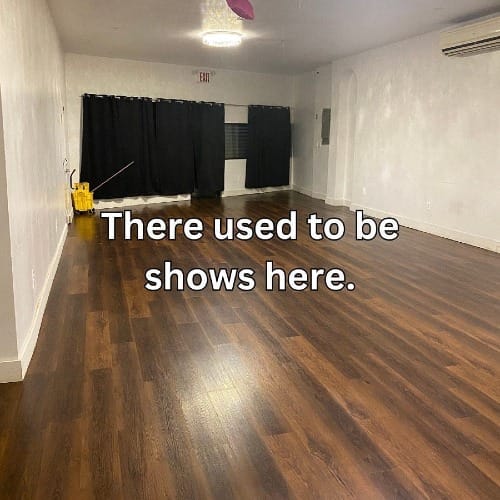
Re: public space and New York, I'm thinking about peak Covid, which obviously brought events literally outside in public spaces because that was the safest place that they could happen. But did you see when there was a TikToker [Kai Cenat] who kind of started a riot in Union Square because he was trying to give away PS5s? There is an energy out there for mass gatherings. It just needs to be harnessed, perhaps in a container that's about safety and respect, as opposed to just smashing a bunch of food trucks...
Can I be a pretentious jerk off for a second?
Of course, it's a safe space.
So we expand on this in our guidebooks a little bit, but the way we define a show is just "a group of people in the same place in real life paying attention to the same thing." So it's bands playing, but also, unfortunately, standup comedy is a show. Theater is a show. All these things are shows. I got so annoyed during Covid when people were like, live streaming is the new thing. There was all this VC money in livestreaming companies and people were like, are shows going to die? Do kids who grew up on TikTok not believe in counterculture anymore? You know how you made a reference to "corporate indie"? Social media has flattened culture to a degree that community and aesthetics are divorced now. They're no longer tied. And I think that's confusing for people, but there is still a desire for underground culture, and to know about something before someone else.
Shows are people paying attention to one thing, but they're also not just that. The way you promote a show, and the way you book a show effectively, is you communicate to people who will be there. As long as people are not alienated to the degree where it is unfeasible that they can either 1, make friends or 2, make out, people will go to shows, because that is the most direct line to finding people who are your tribe of people. Shows are art, and art matters, and you have to pay attention to the artist. But shows are also just a proxy for the people.
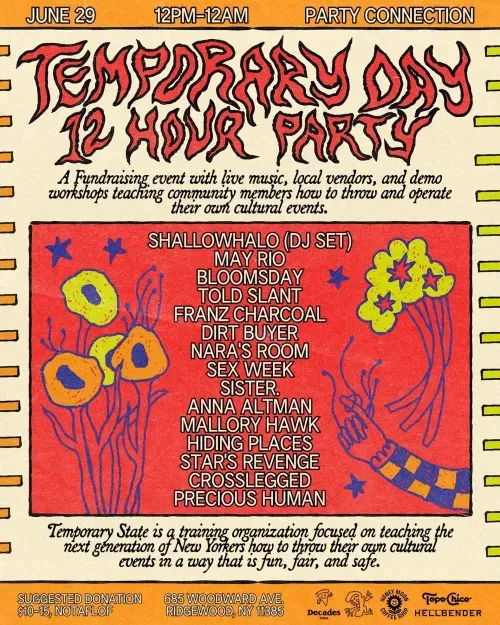
Like, Mk.gee played [in New York]. I fucking love that album. It's my favorite album of the year. I didn't go to the show, because I know who likes that music, and they're fucking dorks and I don't need to hang out with those people, you know? However, Eliza Niemi, this singer songwriter from Toronto, she is the perfect blend of straight singer-songwriter music and also this...post-Mirah twee music? I would never miss her playing in New York, because I know the other people who fuck with that? I am going to fuck with.
Kai Cenat, that blows up because people spend so much time being isolated from other people, and the reason why aesthetics and counterculture have gotten so divorced is because aesthetics is no longer how we find the people we want to meet—the Internet is how we find the people we want to meet. But when the people you know are going to be somewhere, you will fucking go and you will go hard. People need that. People need shows, they need to see the thing they care about in front of them, and then see other people care about that.
Thanks Jordan! You can support Temporary State here.
Thanks for reading I Enjoy Music! If you like it, tell a friend.
*This is where I plug my husband's webseries from 2015 called Band Practice. I'm its biggest fan and quote it constantly...maybe you'll like it too.
